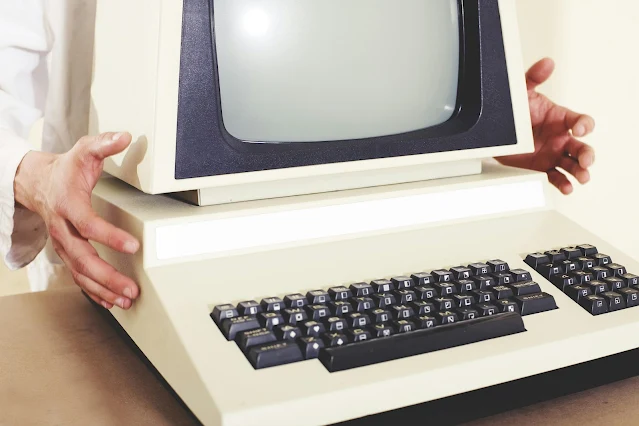A zero-waste kitchen isn’t just about reducing plastic and composting food scraps—it’s also about creating a clean, well-maintained space that naturally deters pests. Unwanted visitors like ants, rodents, and cockroaches are often drawn to food scraps, improperly stored ingredients, and lingering moisture. Keeping them out requires a mindful approach to food storage, waste reduction, and sustainable pest control methods.
Moving is one of life’s major transitions, full of excitement and new beginnings. Yet, it can also become a source of significant waste if not handled with care. From mountains of cardboard boxes and plastic wraps to discarded furniture and household items, moving can generate a significant amount of waste. One step can have a significant influence on the environment.
From Industrial Scraps to Creative Treasures: How Businesses Can Support Upcycling Communities
In the world of mass production, waste is often seen as an inevitable byproduct. Factories, warehouses, and construction sites generate tons of leftover materials—wood offcuts, metal shavings, fabric remnants, and plastic trimmings. Too often, these materials are tossed into dumpsters, bound for landfills, despite being perfectly reusable.
Edmonton's commitment to sustainable waste management has become increasingly evident in recent years. The city's 25-year Waste Strategy, approved in 2019, aims to reduce landfill waste and promote eco-friendly practices. Choosing eco-friendly waste services in Edmonton not only supports the city's environmental goals but also contributes to a cleaner, healthier community for all residents.
In a world where technology evolves faster than ever, old gadgets often end up as clutter—or worse, waste. This growing issue, known as electronic waste or e-waste, poses serious environmental challenges. According to the Global E-Waste Monitor, 53.6 million metric tons of e-waste were generated in 2019, and this figure is expected to rise to 74 million tons by 2030. But not all discarded electronics are destined for landfills. With a bit of creativity and a focus on sustainability, you can breathe new life into old devices, giving them a second purpose while reducing environmental harm.
Eco-friendly Waste Management Solutions for an Environmentally Friendly Tomorrow
Waste management is one of the most demanding challenges facing our planet today, as it struggles with environmental degradation, poverty, resource depletion, and harmful derivatives of unsustainable consumption patterns. This article provides insight into how innovative and comprehensive waste management solutions are the way of the future in a time when being environmentally conscious is not a choice but a necessity.
The Benefits of Renting a Dumpster: Why it's the Smart Choice for Your Project
When starting a project that involves significant waste generation—whether it's a home renovation, a large-scale cleanout, or a construction endeavor — efficient waste management is essential. The accumulation of debris and unwanted materials can quickly become overwhelming, hindering progress and creating safety hazards. While various disposal options exist, renting a dumpster often proves to be the most strategic and advantageous choice.
5 Tips for Building an Eco-Friendly Compost Bin
Creating an eco-friendly compost bin from repurposed materials promotes sustainability while reducing household waste. With a bit of creativity and effort, you can build a functional and environmentally friendly composting system using items you already own. Here are five tips to guide your DIY project.
Optimizing your dumpster rental
Renting a dumpster can be a challenging task. Of course, it must be a convenient and efficient solution to manage waste. In cases of renovation, construction projects, and clean outs, a dumpster is a must. Managing waste with the help of dumpster rental is a boon and, in general, it will maximize the value of investment you make in efficient waste management.
Did you know? The average Australian household produces around 540 kg of waste per person every year. That is more than 10 kg a day for all 26 million residents!
As much of this goes to landfill, which in turn can have a significantly negative impact on the environment, it pays to take steps to reduce the amount of rubbish we throw away.
4 Lifestyle Changes To Reduce Your Carbon Footprint
Are you looking for ways to live more sustainably? If so, I can help! Making lifestyle changes to reduce your carbon footprint has been surprisingly easy for me. I find that making small, conscious choices collectively makes a big difference. Whether you’re new to eco-friendly living or have been doing it for years, my practical tips can help you lower your environmental impact and live a greener life.
Betta fish, with their bright colors and elegant fins, have a special charm that wins over fish lovers everywhere. Their stunning beauty and spirited personalities make them a top choice for aquarium enthusiasts. Creating a beautiful and engaging environment for these fish is just as important as picking the right betta.
Reducing Energy Waste in Production Lines
As the global focus shifts towards sustainability, manufacturing companies are under increasing pressure to reduce energy waste. This isn't just about saving the environment; it's also about cutting costs and improving efficiency. But how can production lines, known for their high energy consumption, become more energy-efficient without compromising on output?
Decluttering Your Home: How to Dispose of Unwanted Items Responsibly
In our fast-paced lives, clutter accumulates, turning our homes into chaotic spaces that can affect our mental and physical well-being. Decluttering brings order to our lives and offers a sense of liberation and tranquility. However, decluttering can be daunting, particularly when disposing of unwanted items responsibly.
When it comes to gadgets, today's must-haves can quickly turn into tomorrow's dust collectors. But, for people watching their wallet, this isn't necessarily a downer. Instead, it's a chance to roll up those sleeves and get creative with what you've already got laying around. Making old tech useful again isn’t just about saving some cash (though, let’s be real, that’s a huge part of it); it’s also about giving those gadgets a second shot at life and cutting down on waste.
6 Things You Can Do With Your Car’s Old Tires
Join me as we explore the many things you can do with your car’s old tires, from creating planters to playground fun for the kids!
Unleashing Creativity: Transforming Everyday Items into Unique Flower Pots
In a world increasingly focused on sustainability, the art of recycling and repurposing has taken center stage. It's not just about reducing waste; it's about finding new life and purpose in ordinary objects. One delightful way to embrace this ethos is by crafting flower pots from everyday items.
In today's eco-friendly world, mulching is more than just a gardening practice. It is an essential part of sustainable gardening, emphasizing not only the nourishment and protection of our gardens but also the care of our planet.
The Impact of Plant-Based Cafeteria Menus on College Campus Sustainability
The modern college campus is a hub for innovation, learning, and growth, not just academically but also in terms of sustainability and environmental responsibility. As students immerse themselves in studying, attending lectures, and completing assignments, another aspect of college life is gaining momentum in its contribution to a greener future – the emergence of plant-based cafeteria menus. This shift toward more sustainable dining options reflects a growing awareness among students and administration alike about the environmental impact of food choices and the role that colleges can play in fostering a more sustainable world.
Lion's Mane Mushroom Cultivation: How to Grow Your Own at Home in the UK
There is no denying the popularity of mushrooms, especially the Lion's Mane mushroom UK. Known scientifically as Hericium Erinaceus, they grow naturally in the wild in North America, Europe, and Asia. However, they are not as commonly consumed in these regions as they are in Asia. If you are keen to grow your own Lion's Mane mushrooms in the UK, then keep reading. This post recounts detailed information that will make your mushroom cultivation venture an exceedingly fruitful one.

















